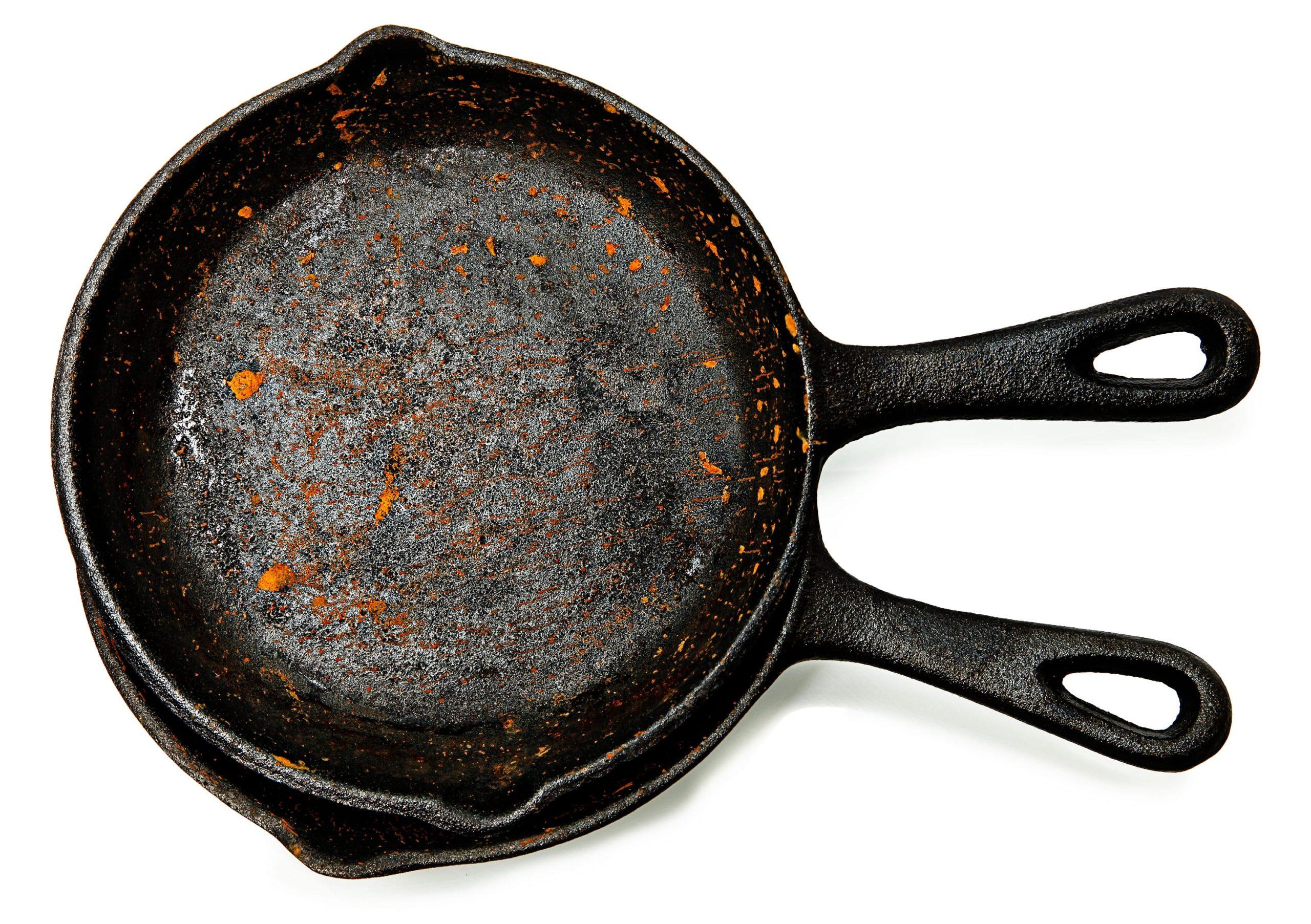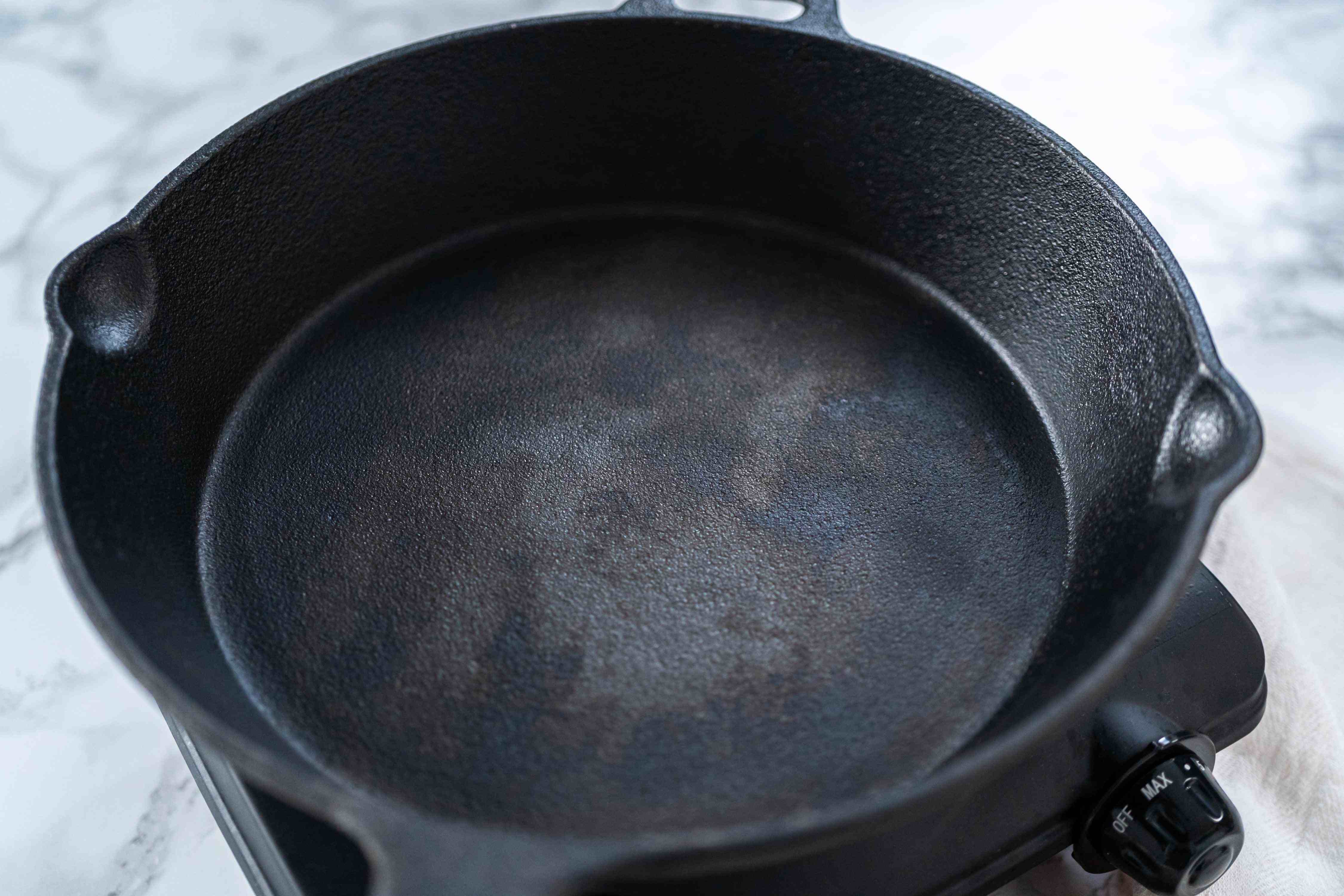
Do you want to know the secret to making your cast iron skillet look like new every time? Cleaning a cast iron skillet can be intimidating, but it doesn’t have to be! With just a few simple steps and materials, you’ll learn how to clean your cast iron skillet quickly and effectively. Get ready for perfectly seasoned, gleaming cookware that will last for years.
Preparing a Cast Iron Skillet for Cleaning
Cast iron skillets are a great addition to any kitchen, but they do require special care. Before cleaning your cast iron skillet, it’s important to take the time to prepare it first. This is done by heating up the skillet on a stovetop over medium-high heat until all of the residue on its surface starts to turn brownish. Once that happens, you can then safely use either soap and water or just hot water alone (depending on how much buildup there is) and a scrub brush or sponge to get rid of anything left behind from cooking.
Soaking and Scrubbing a Cast Iron Skillet
Cleaning a cast iron skillet might seem like a daunting task, but it’s actually quite simple. First, you’ll want to fill the skillet with warm water and add some dish soap. Then let that sit for an hour or so before scrubbing it down with a stiff brush. If there are still stubborn bits of food stuck on, try soaking the pan in vinegar overnight and then using steel wool to really get into those nooks and crannies!
Drying and Seasoning a Cast Iron Skillet
To properly dry and season a cast iron skillet, you’ll need to have some kitchen supplies on hand. First, make sure the skillet is clean of any dirt or debris. Then, preheat your oven to 350 degrees Fahrenheit and place the skillet in it upside down for 5 minutes. Afterward, remove it from the oven and use steel wool to rub a thin layer of vegetable oil onto its surface before placing it back into the hot oven for an hour. Once finished baking, let your cast iron cool off before using – voila! You’ve successfully dried and seasoned your very own cast iron skillet!
Removing Rust from a Cast Iron Skillet
Removing rust from a cast iron skillet can seem like a daunting task, but it doesn’t need to be! The best way to remove rust is by using an abrasive sponge and some coarse salt. Start by scrubbing the pan with the salt-covered sponge in circular motions until you are able to see all areas of the skillet without any rust spots. Rinse off the salt with hot water and dry thoroughly before lightly oiling your pan for storage.
Re-seasoning a Cast Iron Skillet with Oils or Waxes
Re-seasoning a cast iron skillet with oils or waxes is an effective way to maintain its non-stick properties and prevent rust. To start, you’ll need to clean out the skillet with hot soapy water and then use steel wool pads to scrub off any residue or rust. Make sure it’s completely dry before beginning the seasoning process! The next step is to coat your skillet in oil (vegetable, canola, olive) and then bake it at 350 degrees for one hour. Finally, you can add another layer of coating either by hand with melted wax or spray on a thin layer of cooking oil for extra protection.
Storage of a Cast Iron Skillet
Cast iron skillets are best stored with a light coating of oil on them. This will help to prevent rust and keep the skillet in good condition for years to come. It is important that you never store your cast iron skillet until it is completely dry, as this can lead to rusting or fracturing. Additionally, if there’s any food left inside the pan after cooking, make sure to scrub it off with warm soapy water before storing.
Troubleshooting Tips & Tricks of a Cast Iron Skillet
Cast iron skillets are incredibly useful and versatile cookware. However, like any other cookware, they can sometimes require troubleshooting tips and tricks in order to get the most out of them. The first tip is to season your skillet regularly with oil or fat. This will help prevent rusting and preserve its nonstick properties over time. Additionally, avoid using metal utensils when cooking with a cast iron skillet as this can cause scratches that could lead to rusting down the line. Finally, ensure you’re cleaning your skillet properly – avoid using soap if possible! A little hot water should do just fine for daily maintenance.

Originally posted 2023-02-12 05:56:18.




